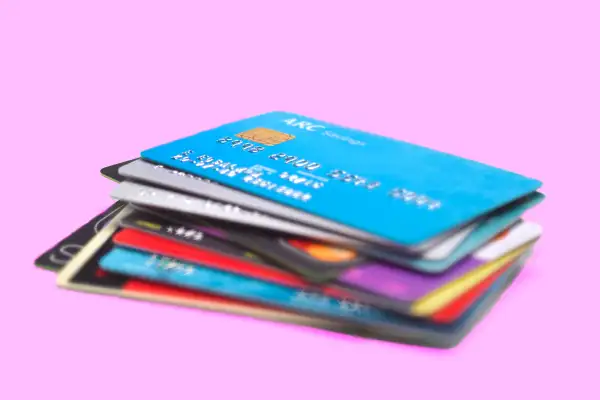Can't Pay Your Credit Card Bill Because of Coronavirus? Here's What to Do

With fears of coranavirus sweeping the U.S., millions of Americans that seemed financially secure just a month ago, may be suddenly facing a cash crunch. If credit card debt is one of your worries, card issuers may be willing to listen.
Research shows that roughly four in 10 Americans don’t even have $400 in cash to cover emergency expenses, meaning many of us, especially those with debt payments to make, are likely to struggle if sectors of the U.S. economy shut down for weeks or even months. Although Treasury Secretary Steven Mnuchin pledged to prioritize “sending checks to Americans immediately” in a news conference Tuesday, there’s a growing outcry on social media of credit cardholders begging banks to waive late fees, suspend interest accrual and lower APRs to keep borrowers from sinking into an unrecoverable debt trap.
Even for people who diligently pay their balance in full every month, the prospect of having an abrupt termination of regular paychecks can quickly add up to a big headache. The average credit card APR was right around 15% as of November 2019, the most recent data reported by the Federal Reserve, and interest rates for people with less-than-pristine credit can climb much higher, especially on private label retail credit cards.
"I worry… about those credit card holders who are losing their hourly jobs and who will be facing late fees and debt collectors if banks and other companies do not waive late fees and interest and show patience with struggling families,” says Lauren Saunders, associate director for the National Consumer Law Center.
Apple Card issuer Goldman Sachs is reportedly offering an assistance program that lets cardholders skip their March payments without accruing interest, and most of the other big issuers are following suit in some fashion.
Most issuers responding to a query from Money urge credit cardholders who are struggling to make their bills because of the coronavirus pandemic to call the number on the back of their card for assistance. They say that, depending on your circumstances, you might be able to get payments deferred, and late fees and/or interest charges waived.
Here's what we heard from big credit card issuers we contacted, and what social media users are telling fellow customers they have found out. Money will update this page as we receive information from other card-issuing banks.
Capital One: A Capital One spokeswoman says customers should call if they're struggling to make their payments. She says, "The provisions offered really depend on the individual customer's needs, but can include fee suppression, minimum payment assistance and deferred loan payments." Capital One has an informational page here.
Citi: “We will work with them on an individual basis,” a spokeswoman says, directing us to an informational page on Citi’s website, which referenced the potential availability of help via “assistance programs for eligible credit card customers, including credit line increases and collection forbearance programs.” Citi also says bank customers can ask for monthly account fee waivers and waived penalties for early CD withdrawal, so if you have money locked up in CDs, it’s worth asking if your bank will let you tap those funds without incurring a penalty to help tide you over, especially if you use the same bank for saving and borrowing.
Discover: “Discover will be extending relief to qualified customers…that can include support related to payment timing, fees and late payments,” a spokesman says. Discover did not respond to a request for comment on how it defines “qualified.”
Synchrony: You might not recognize the name of the bank, but Synchrony is a huge issuer of private-label store credit cards. A spokeswoman says, "For individuals experiencing financial hardship, they should contact us to discuss waiving certain fees and charges across credit card accounts; evaluating credit limits to help with additional, necessary purchases, and waiving fees on Synchrony Bank deposit accounts as needed."
TD Bank: A spokeswoman for TD Bank says their assistance “may include fee waivers, early access to certificates of deposit and payment extensions."
Wells Fargo: A spokeswoman says, “We are currently providing assistance including fee waivers, payment deferrals, and other expanded assistance.” She also says borrowers on other types of products like mortgages and car loans can contact the company if they’re having trouble with their bills.
Twitter user Natalia Silver says that her lender — Chase — waived interest and her minimum payment. Other options, if you’re eligible, might be a balance transfer offer or asking for an extension on your credit limit. Twitter user Jane Wells says Bank of America increased the credit limit on her small business account without her even asking.
Just be warned that it might take a while to get through; especially since so many people use credit card rewards to book trips, call centers have been overwhelmed with customers asking for help trying to cancel flights or get refunds.
That’s why the most important thing is to reach out right away. “Consumers who are struggling to pay their credit card bills because of the coronavirus should immediately call their lender and ask for help. They need to do this proactively to get some sort of relief and to protect their credit records,” Saunders says.
More from Money:
Coronavirus and Online Grocery Delivery: Everything You Need to Know

